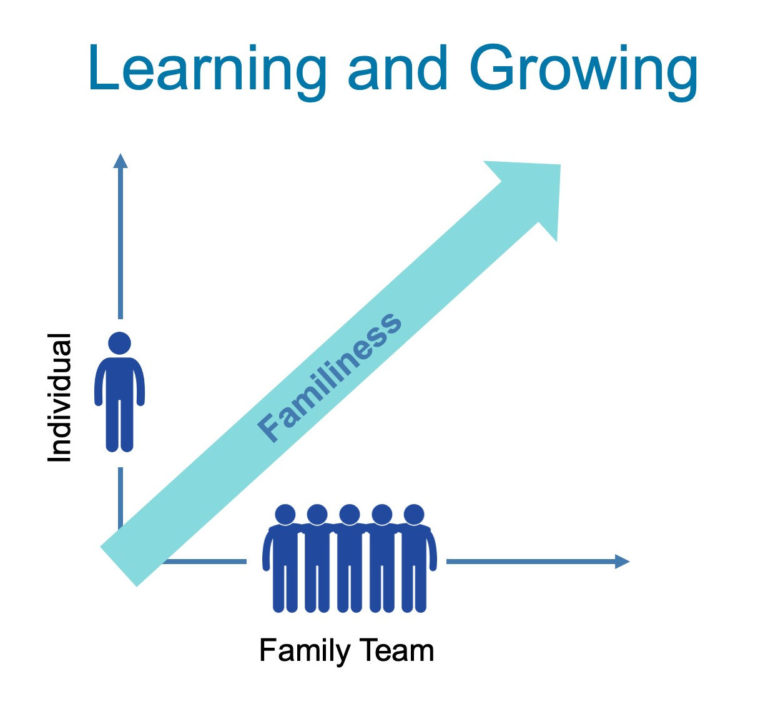Even the most successful families experience conflict now and again. In family business, conflict is unavoidable. Fortunately, research overwhelmingly shows that it’s not the presence of conflict that is detrimental to relationships, rather, it’s how conflict is managed. We use the word managed and not resolved when referring to conflict because, although it seems counter intuitive to embrace conflict, family conflict is natural and can provide learning and growth opportunities for families who approach it consciously.
One of the first steps in managing conflict in your family is to raise your awareness both individually and collectively about how toxins emerge in your conversations when conflict is present. Relationship researcher and best-selling author John Gottman of The Gottman Institute identified “Four Horsemen of the Apocalypse” — a metaphor for toxic communication patterns that are consistent predictors of divorce. While they can be detrimental to a marriage, they pose the same threat to other relationships in the family. The Four Horsemen are:
- Criticism
- Defensiveness
- Contempt
- Stonewalling
While we often hear people point out someone else’s behavior as “toxic,”we rarely recognize our own behavior as toxic. In my previous article, “The Learning Family: Building a Family’s Capacity to Develop as a Team,” I established that learning and growth must be both vertical (individual) and horizontal, (across the family system). This is the only way to sustainably increase the family’s capacity to manage family dynamics and build the necessary trust to move forward together.

This same principle applies to learning about communication toxins. These toxins must first be recognized as destructive interaction patterns in ourselves and then also across our family systems. If these toxins fail to be addressed, families tend to get stuck in destructive patterns that undermine the health of their relationships and ultimately the health of the business.
Individuals and families often tend to default to one or two of these toxins, but all of them show up from time to time. Based on content from the Gottman Institute, as well as Relationship Systems training through CRR Global, I’ve adopted descriptions of these toxins and how to manage them in a way that can improve relationships instead of destroying them. As you read the descriptions below, notice which ones show up in your relationships and learn what you can do instead.
Criticism/Blame
Criticism is when a judgement is expressed on another person’s personality or character, rather than focusing on the behavior they are exhibiting. There is a difference here between complaining and criticism. A complaint addresses a specific failed action. A criticism adds some negative words about the other person’s character or personality. For example, adding, “You always do this!”or “What’s the matter with you?” to the end of any complaint will turn it into a criticism.
Question for you: When and with whom are you critical?
What you can do instead: Turn complaints into requests. Example: instead of saying, “You didn’t tell me about the new hire,” say, “It’s important that I know when someone is hired. Can you please inform me when you’ve hired someone new? Will you include me in your communication about this?”
If someone is being critical of you, listen for the reasonable request in the complaint. If you hear: “You didn’t tell me about the new hire,” simply say, “I’m sorry. Would you like me to include you in the hiring process?” This is much more productive then defending yourself (e.g. “You didn’t tell me you wanted to know about new hires” – which is basically saying: “It’s your fault because you didn’t tell me you wanted to be included in the hiring communication.” This simply shifts the blame and escalates the conflict. Note, that the requests are not demands.
What we want here is to create positive change, not more conflict. Focus on the changes that need to be made in order to take care of the issue. Take responsibility and apologize when appropriate.
Defensiveness
We tend to want to defend ourselves when we are criticized. However, defensiveness is really just blaming in reverse. When people are defensive, they want to take the heat off themselves and put it on the other person. What they are really saying is: “It’s not me, it’s you.” All this does is escalate the conflict further.
It is common for the defender to have ready excuses for the behavior being questioned: “They were unforeseen events!” The person attacked presents themselves as innocent of any wrongdoing because of the challenging situation. Defensiveness invalidates, suppresses, and diminishes the other person’s current thoughts and feelings. It can also be damaging to self-worth and an individual’s ability to learn and heal from negative encounters.
Question for you: When do you react with defensiveness or fail to take responsibility for your contribution to the problem?
What you can do instead: Repeat what you heard and ask for clarification: “I’m hearing you say that I’m not reliable. Can you clarify that?” Then search for the “2%” truth in what you are hearing. For example: “It is true that I didn’t anticipate this problem, and I can see how this could make you doubt my reliability.”
Usually, people get defensive when they don’t feel heard. This can be avoided if you listen deeply and clearly convey to the person that you understand what they are saying.
Contempt
Contempt includes treating other with disrespect and mocking them with sarcasm, belittling, cynicism, name-calling and hostile humor. It can show up in body-language as eye-rolling and sneering. Contempt is the most poisonous of the Four Horsemen because it conveys disgust and superiority: “I’m better than you, you are less than me.” In this way, contempt attacks the other’s sense of self. Contempt is often the result of long-simmering negative thoughts about a partner. This happens when differences are not resolved regularly. It is virtually impossible to solve a problem and grow a relationship where contempt is present.
Question for you: When do you act with contempt?
What you can do instead: If someone is acting contemptuously, express your feelings and needs about the issues, identify the unwanted behavior, and indicate a willingness to resolve the situation. For example: “Take it easy. I’m starting to get angry. I don’t like when people call me names. Can we work this out in a more positive way?”
Avoid using “You” statements which only make the other feel attacked. Instead, get curious. Try asking: “What is your intention in saying that?” They may not even be aware that they sound contemptuous to you. Clarify their intention and try to find the deeper purpose of what is being said. Another way to address this is by asking; “Are you aware of your impact right now?” Then explain your experience and ask, “Is this the impact you want to have?” People often use toxic communication unconsciously. This helps them become aware and take responsibility for their communication style.
When you are the one feeling contempt, try reframing the situation for yourself by looking for something you admire in the other. Overlapping roles and other challenges in family business can lead to many tensions and difficult dynamics that over time erode positivity in family relationships. Families can learn to celebrate each other’s strengths and admire one another for their individual creativity and resourcefulness. When families choose to work at this intentionally, they can cultivate a culture of fondness and admiration that helps everyone feel valued. This is the best way to keep insidious contempt from rooting itself in the family.
Some people try to excuse their contempt by saying, “I’m sarcastic, that’s just the way I am.” Recognize that overuse of sarcasm is destructive and harming your relationships more than you think. If you want to improve your relationships, learn to be funny and interesting in more positive ways.
Stonewalling
Stonewalling includes cutting off communication, silent treatments, refusals to engage, withdrawal, or in mild cases simply being unwilling to express what you are thinking. Stonewalling shows up commonly in business-owning families when one or more of the other Horsemen are running wild. When this happens, one or more people (sometimes the entire family) wants to tune out the whole conflict and stonewall. This stops the exchange of information and prevents a collaborative approach to managing the conflict.
Question for you: What things do you avoid talking about and what causes you to shut down?
What you can do instead: If you are flooded, find a way to relax yourself. If you are stonewalling, look at your fears – what information are they giving you? Get grounded in who you really are before speaking.
If you are being stonewalled, pay attention to what you are doing that makes the other not feel safe to express himself. Do you feel contempt? Have you not valued their ideas in the past? Have you been judgmental?
The Learning Family Approach
There are many factors that build a family’s capacity to work together as a team and increasing the likelihood of family business continuity. Broadly speaking two things are required: adequate structures and good relationships. Families who do all the right things but ignore the damage that toxins in communication have on their family relationships often find it difficult to sustain long-term success. Reducing toxic behavior can help increase the overall positivity that is so important for relationships to thrive and to sustain family teams in their quest for their own well-being and the well-being of the business.
Again, learning needs to happen both individually and across the family system. Individually, focus on how you want to be regardless of what others do. This will make a big difference in itself. Horsemen have a hard time living alone.
As a family, name the Horsemen when you notice them (but not in a blaming or critical way) and then get curious about them. Example: “We are getting defensive” or “We are being critical” – “What’s happening? What will help us work through this?”
Find ways to add positivity to your relationships. A “reservoir” of positivity will help deal with Horsemen when they show up. Articulating what you appreciate about one another may be the most powerful way to keep the Horsemen away and can transform a blaming family into a learning family.
January 7, 2022
